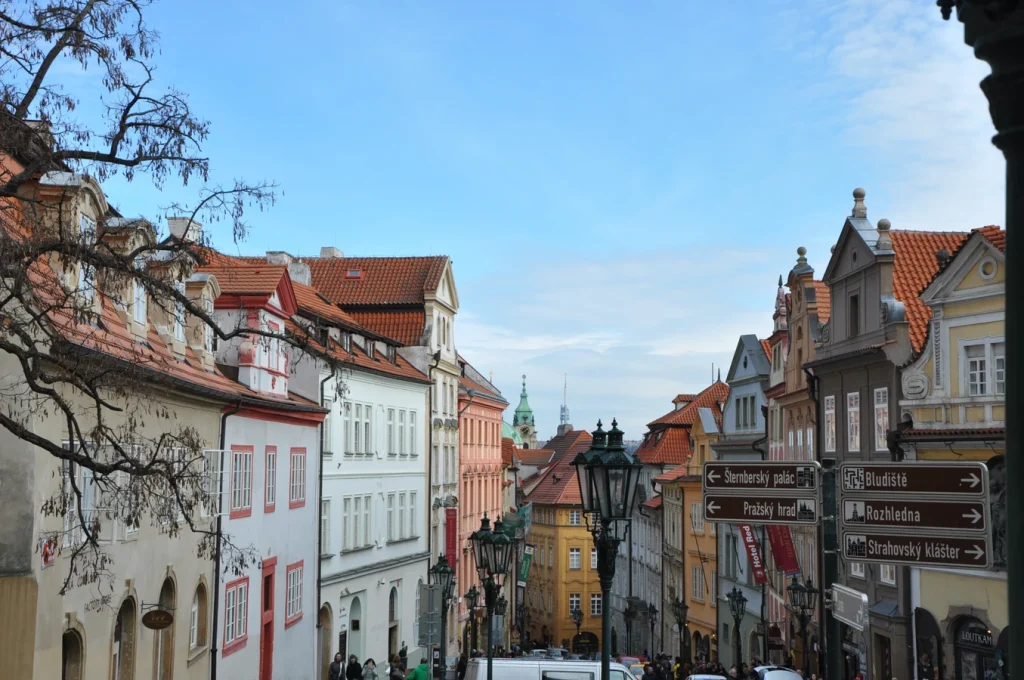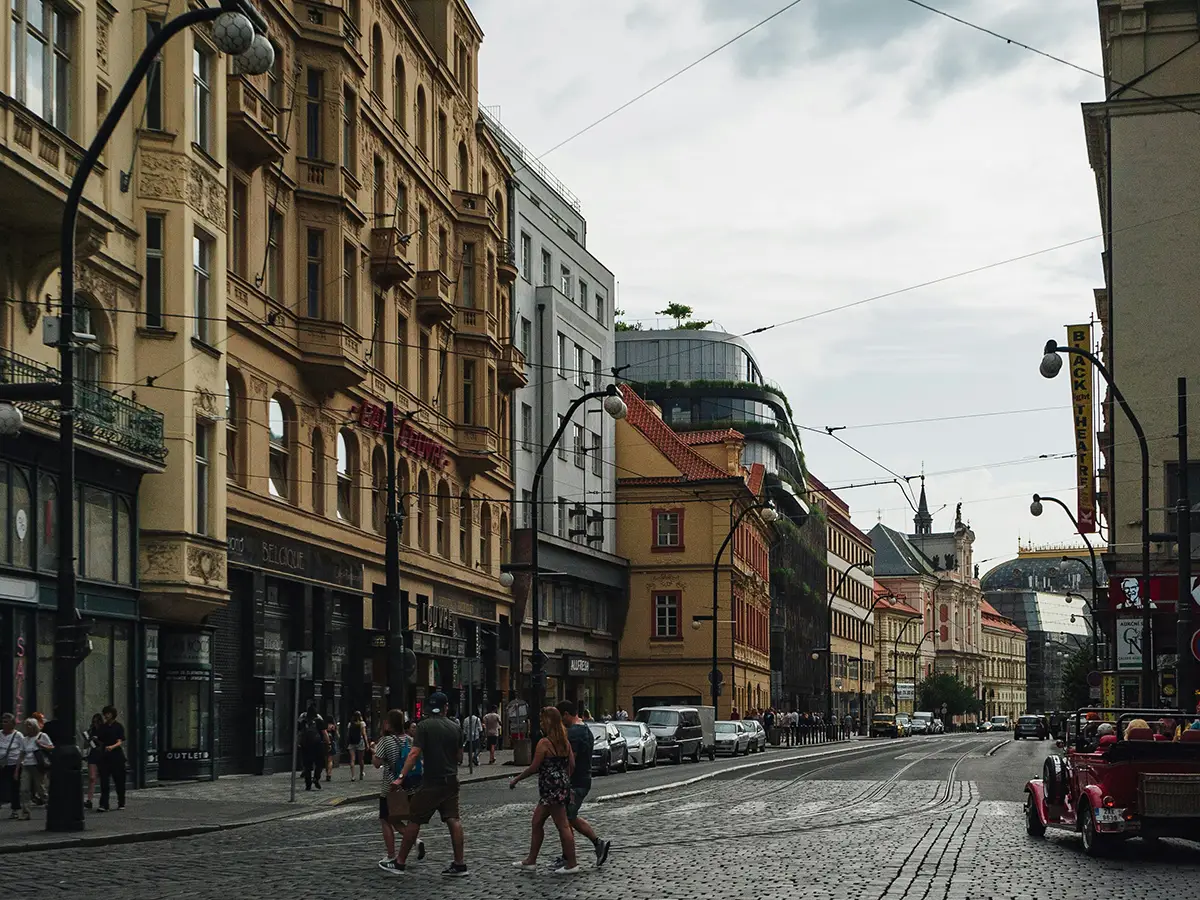Buying property in Central Europe has long gone beyond a simple alternative to bank deposits. The Czech market offers not only stable growth in value, but also reliable capital protection, high legal transparency and access to residence status. Practice shows: investing in square metres in this country justifies itself both from the position of profitability and as a basis for life in the EU. What does buying property in the Czech Republic offer? A strategy for living, income generation and legal status.
Infrastructure and standards: what buying a property in the Czech Republic gives you?
Before buying, an investor considers not only the price per square metre, but also the operational characteristics of the object, location, profitability and the level of legal guarantees. The Czech Republic maintains a steady growth of the property market even during periods of global fluctuations.
European standards of housing in the Czech Republic
The country’s housing stock is characterised by a high level of energy efficiency, engineering solutions compliant with EU directives, and impeccable logistics. Most projects are built using certified materials, recuperated ventilation systems are implemented, and noise insulation complies with EU norms. The neighbourhoods are equipped with bicycle paths, parks, schools and clinics within walking distance.
Czech property investments: calculations and dynamics
Purchased flats and houses remain highly liquid. The average increase in property values in Prague, Brno and Plzeň is between 6 and 10% per year. Against the background of low deposit rates and currency instability, this is a reliable way to preserve and increase capital. What gives the purchase of property in the Czech Republic – a practical benefit: with investments from 150 000 euros within 5 years you can fix the growth of up to 50% of the invested funds.
Legal aspects: protection and transparency of the transaction
 The real estate transaction is strictly through a notary, is registered in the cadastre and eliminates the risks of double sale. Therefore, spontaneous changes in terms and conditions are not possible.
The real estate transaction is strictly through a notary, is registered in the cadastre and eliminates the risks of double sale. Therefore, spontaneous changes in terms and conditions are not possible.
Transaction and registration
The purchase procedure includes title verification, preliminary contract, down payment, notarisation and registration in the cadastre. All stages are accompanied by a lawyer and a broker. What gives the purchase of property in the Czech Republic in this context – full transparency and control at all levels, including protection from speculative schemes.

Taxes and expenses
Annual property tax does not exceed 0.1-0.3% of the value of the property. When renting out a flat, the investor pays a fixed income tax after deducting maintenance costs. Sales after five years of ownership are exempt from capital gains tax. The tax burden is kept to a minimum, especially for renting or long-term ownership.
Life in the Czech Republic: why investors choose this country
Real estate is not only an object of capital, but also an instrument of forming a new way of life. Buying a home in the Czech Republic provides access to infrastructure, education, medicine, legal protection and comfortable European life. The attractiveness of the country goes far beyond economic indicators: it is formed by a safe environment, cultural proximity, moderate climate and high level of service. Buying property in the Czech Republic is not only an investment benefit, but also an opportunity for a radical transformation of everyday life.
Czech residence permit and permanent residence permit through the purchase of real estate
The purchase of housing gives grounds for obtaining a residence permit, especially if there are additional factors – renting, setting up a business, income from abroad. Immigration legislation allows for a residence permit for a period of one year with the possibility of extension. In the future, if the terms of stay and basic conditions are met (no debts, health insurance, permanent address), the status of permanent residence is available.
The IOU allows:
-
to live and move freely in the country;
-
to receive health care services within the public system;
-
to start a company, to run a business;
-
use Czech banks, loans, mortgages;
-
design educational programmes for children;
-
invite relatives on a family reunification visa.
After five years – subject to integration and basic Czech – it is possible to obtain permanent residence status and then apply for citizenship. What buying real estate in the Czech Republic provides – not a fictitious but a legally sound way to a sustainable stay and further legalisation.
Safety, environment and medicine
The Czech Republic is consistently ranked among the top ten safest countries in Europe by the Global Peace Index. Crime rates are minimal, especially in small towns and suburbs. Police stations are open 24 hours a day, public spaces are under video surveillance, and residents demonstrate a high level of social responsibility. There is virtually no street aggression, and the number of thefts and offences among the population is decreasing every year.
The climate is mild: winter without severe frosts, summer is comfortable. This reduces the burden on health, especially for the elderly and families with children. The ecological situation is another weighty argument. Towns and villages are actively greened, programmes are implemented to reduce emissions, sort waste and improve air quality. Water supply meets strict European standards.
Czech healthcare is financed by state insurance and includes high-tech diagnostics, prompt care and a family doctor programme. Major cities have multidisciplinary clinics, including world-class university hospitals.
Infrastructure and comfort in everyday life
Life in the Czech Republic is organised in a logical and convenient way. Public transport runs to the minute. Subways, trams, buses – everything is accessible anywhere in the city. Parks, sports fields, cycle paths and libraries are integrated into the urban landscape. Schools, kindergartens, medical centres and shopping centres are being built in the suburbs.
Buying a home in Prague neighbourhoods such as Stodulki, Dejvice, Vinohrady, or in suburban areas such as Celakovice or Ržičany allows you to combine the accessibility of the metropolis with the quietness of nature. Example: in Rziczane a house of 120 sqm with a plot of 400 sqm costs from 250,000 euros, providing a perfect balance of privacy and accessibility to infrastructure. What buying property in the Czech Republic gives you is access to a standard of living in which comfort and quality are not dependent on status, but serve as a standard.
10 reasons to buy property in the Czech Republic
The combination of advantages that make square metres a strategic asset..:
-
Direct access to the EU market and property protection under EU law.
-
High yields – up to 7% per annum on rent and up to 10% on value growth.
-
Simple and transparent transaction through a notary.
-
Possibility of registration of residence permit and residence permit.
-
Low taxes and no hidden costs.
-
A secure banking system and a stable currency.
-
European standards of housing and infrastructure.
-
Market growth prospects: increasing demand from digital nomads and IT professionals.

-
Comfortable living environment with children, business and remote work.
-
Flexible resale or inheritance options.
What buying a property in the Czech Republic gives you: conclusions
 Czech property remains one of the most balanced assets in Europe. Reasonable prices, stable market, legal transparency, profitability and liveability make buying a flat or a house a real investment. What does buying property in the Czech Republic offer? Life with European quality and a stable outlook.
Czech property remains one of the most balanced assets in Europe. Reasonable prices, stable market, legal transparency, profitability and liveability make buying a flat or a house a real investment. What does buying property in the Czech Republic offer? Life with European quality and a stable outlook.
 en
en  ru
ru  de
de  ar
ar  es
es  nl
nl  hi
hi  fr
fr  it
it  pt
pt  el
el 









